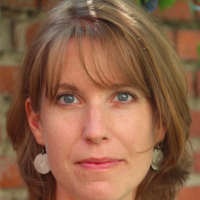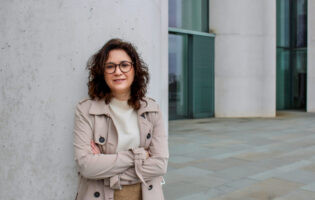The Voices from Below: Who is Civil Society?

Anne J. Kantel
American University
Anne J. Kantel is a PhD candidate at the School of International Service at American University with a focus on environmental politics and political violence. Her dissertation research looks at the interaction of state and local fisheries management practices in Uganda, and the effects of these encounters on issues of compliance, legitimacy, and the production of knowledge(s). Her work engages with broader questions of justice, power and equality in today’s world and draws on insights from various fields, such as critical IR theory, feminist studies, political geography, and cultural anthropology. In addition to her dissertation research, Anne J. Kantel is actively involved in research analyzing issues of identity, territory, and conflict in International Relations. She is the co-author of “Accepting the Unacceptable: Lessons from West-Germany’s Changing Border Politics.”
She is a 2016-2017 participant in AICGS’ project “A German-American Dialogue of the Next Generation: Global Responsibility, Joint Engagement,” sponsored by the Transatlantik-Programm der Bundesrepublik Deutschland aus Mitteln des European Recovery Program (ERP) des Bundesministeriums für Wirtschaft und Energie (BMWi).
In its most basic sense, civil society is an analytical concept denoting a domain of collective life above the individual but below the state, in which people voluntarily come together to organize around shared interests and express themselves and their concerns publicly. In many ways, this understanding is linked to our liberal understandings of the state and the market that—in their ideal types—create possibilities for horizontal and civil relations among—at least partially—autonomous actors in a space upon which the state cannot encroach. This liberal heritage, I argue, has led us to a definition of civil society in the Western world that highlights the participation of certain actors in the political, democratic process while silencing a very significant part of “the others.”
The role of civil society, many have claimed, is to remind government leaders of who they are representing. And while I tend to agree, I find two fundamental shortcomings in this assessment of the function of civil society. First, it assumes the existence of a democratic institutional governance design that allows for (a) points of access for civil society actors to communicate their grievances as well as for (b) a deliberative political decision-making process. Second, and even more critically, it neglects the role of power dynamics between the state and civil society groups as well as among civil society actors. The existence of grievances does not equal political activism. It requires a certain amount of resources to make one’s voice heard and participate in the deliberative public sphere.
For example, a quick glance at the official websites of both the German and the U.S. government reveal an interesting picture. Civil society is associated with groups promoting democracy, human and labor rights, environmental policies, and intercultural understanding and reconciliation. Civil society representatives are called “stakeholders” interested in increased “accountability,” “efficiency,” and “transparency” of (global) governance processes, laws, and policies. Civil society actors that are either not fluent in this official language or not able (or willing) to mobilize the resources to afford professional representation remain either unheard or are labeled as the “uncivil” part of society. Either way, they are silenced as “the other.”
It is time that we go beyond simply recognizing the allure the counterhegemonic discourse of groups like PEGIDA in Germany and the (self-declared) Trump Movement in the U.S. offers to people that have felt silenced and forgotten for decades. Only by finally acknowledging that these voices from below are just as legitimate and part of civil society as the ones promoting hegemonic liberal principles of freedom, equality, and prosperity (or left alternatives), will we be able to enter a dialogue that might begin to bridge the deep divide between the winners and the losers of three decades of neoliberalism.









